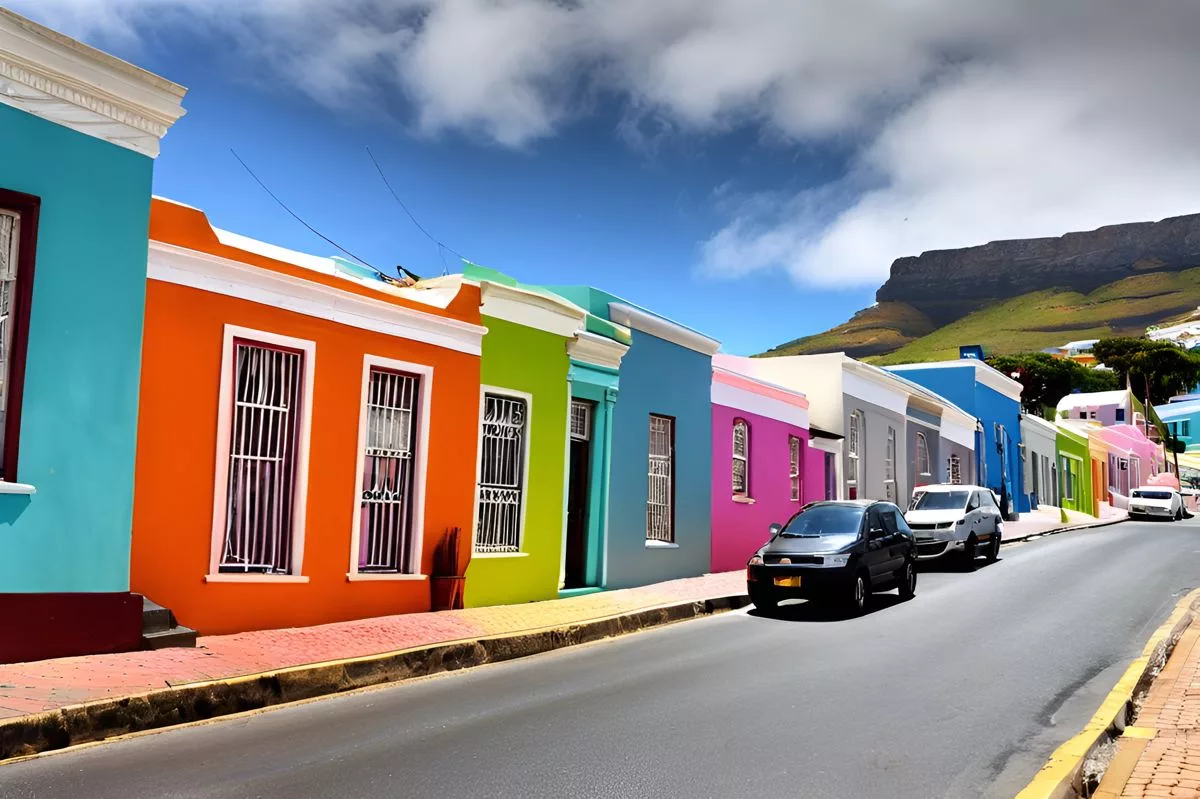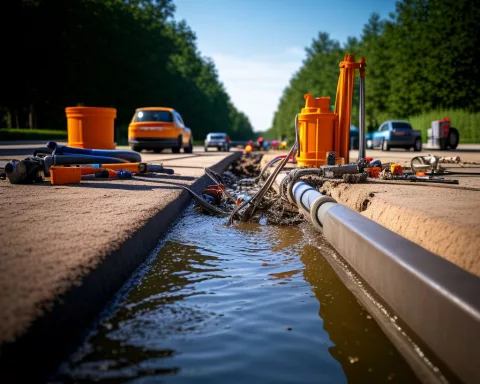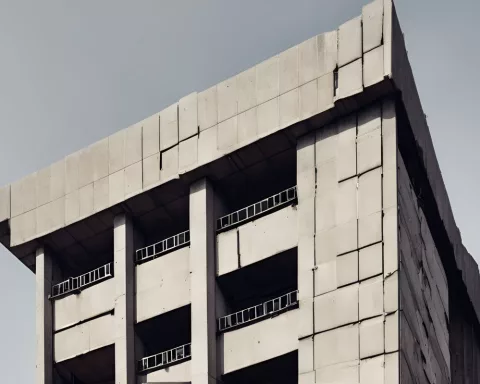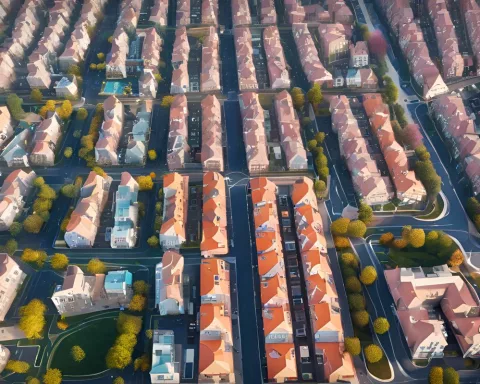Bo-Kaap, a vibrant and colorful neighborhood in Cape Town, South Africa, is facing the threat of an upcoming six-storey development. Though the proposed height of the building has been downsized, the Bo-Kaap Civic and Ratepayers Association is still strongly opposed to the project, fearing that it would disrupt the spiritual, social, and architectural harmony of the area and destroy its unique cultural identity. The ongoing dialogue between the developers, the BKCRA, and the local inhabitants highlights the need for balanced urban planning that respects and safeguards the histories and heritages that give cities their unique identities.
“The upcoming six-storey development is viewed as a menace to Bo-Kaap’s treasured heritage by the local inhabitants. Despite downsizing the proposed height of the building, the Bo-Kaap Civic and Ratepayers Association maintains its strong opposition, fearing that it would disrupt the spiritual, social, and architectural harmony of the neighborhood. The ongoing dialogue between the developers, the BKCRA, and the local inhabitants is reflective of a broader debate surrounding urban development and heritage preservation.”
Potential Threat to Bo-Kaap’s Heritage
Located in the heart of Cape Town, South Africa, Bo-Kaap is a neighborhood that beautifully captures the city’s rich historical nuances. The neighborhood, identified by its vibrant and colourful Georgian houses, is a living symbol of its deep cultural roots. However, this peaceful and pictorial suburb is now facing the potential disturbances of an upcoming six-storey development, which is being viewed as a menace to their treasured heritage by the local inhabitants.
The development project, launched by Flyt Property Investment, is intended to fill in a vacant space on 150 Buitengracht Street, just a stone’s throw from the highly respected Auwal Mosque, the earliest mosque in South Africa. The plot was acquired by Flyt in 2017, two years before Bo-Kaap was recognized as a Heritage Protection Overlay Zone (HPOZ).
Despite the change in zoning, Flyt remained undeterred in realizing their plans for a 76-room hotel and restaurant, originally designed as an eight-storey structure. After half a year of dialogue with the South African Heritage Resources Agency (SAHRA), the plans were amended, downsizing the proposed height of the building.
Opposition from the Local Community
Nonetheless, the Bo-Kaap Civic and Ratepayers Association (BKCRA) maintains its strong opposition. It is currently initiating an appeal against the approval of the project by the Municipal Planning Tribunal. The anxiety expressed by the BKCRA is not merely about physical factors; it is also symbolic. Their fear stems not from the structure’s size, but from its potential to disrupt the spiritual, social, and architectural harmony of the neighborhood.
Osman Shaboodien, the chairperson of the BKCRA, vocalizes these concerns, claiming that such a project would “destroy the very essence of our heritage.” He contends that the projected development, even in its scaled-down form, jeopardizes the unique allure and history of Bo-Kaap, a community that traces back to the 1760s.
Historically, Bo-Kaap was a region where houses for rent were constructed by the Dutch colonial government and leased to slaves from East Indies and Africa. The vibrantly colored houses, a unique characteristic of this area, are a symbol of resistance against colonial authorities who originally decreed that they be painted white. Once these restrictions were lifted, the inhabitants, embodying their newfound freedom, painted their houses in various colors, thereby etching their resilience onto the neighborhood’s landscape.
The Need for a Balanced Approach to Development
The BKCRA does not oppose development as a whole, but they argue for a balanced strategy that respects the community’s unique cultural identity. They also maintain that the proposed building’s existence would aggravate the already deteriorating condition of the narrow roads and historic cobblestones of Bo-Kaap.
Inhabitants also worry that the looming structure would infringe on their privacy. Shireen Sampson, a resident living next to the proposed site, expresses her apprehensions about the balconies of the new building overlooking their properties. Like her, many others are seeking development that takes into account community concerns.
Conversely, property developer Zane De Decker maintains that the project is the result of “extensive and protracted engagement with the Bo-Kaap residents.” His argument primarily hinges on the idea that worries about the scale of the building are selective and do not consider larger hotel developments within the same HPOZ.
The ongoing dialogue between the developers, the BKCRA, and the local inhabitants is reflective of a broader debate surrounding urban development and heritage preservation. The situation evolving in Bo-Kaap acts as a stark reminder of the need for considerate urban planning that respects and safeguards the histories and heritages that give cities their unique identities.
1. What is the potential threat to Bo-Kaap’s heritage?
Bo-Kaap, a vibrant and colorful neighborhood in Cape Town, South Africa, is facing the potential threat of an upcoming six-storey development that is being viewed as a menace to their treasured heritage by the local inhabitants.
2. Who is initiating an appeal against the approval of the project by the Municipal Planning Tribunal?
The Bo-Kaap Civic and Ratepayers Association (BKCRA) is currently initiating an appeal against the approval of the project by the Municipal Planning Tribunal.
3. What is the reason behind the BKCRA’s strong opposition to the project?
The BKCRA’s strong opposition stems from their fear that the projected development, even in its scaled-down form, would disrupt the spiritual, social, and architectural harmony of the neighborhood and jeopardize the unique allure and history of Bo-Kaap.
4. What is the historical significance of Bo-Kaap?
Historically, Bo-Kaap was a region where houses for rent were constructed by the Dutch colonial government and leased to slaves from East Indies and Africa. The vibrantly colored houses, a unique characteristic of this area, are a symbol of resistance against colonial authorities who originally decreed that they be painted white.
5. What is the need for a balanced approach to development?
The BKCRA does not oppose development as a whole, but they argue for a balanced strategy that respects the community’s unique cultural identity and takes into account community concerns.
6. What is the broader debate surrounding urban development and heritage preservation?
The ongoing dialogue between the developers, the BKCRA, and the local inhabitants is reflective of a broader debate surrounding urban development and heritage preservation. It highlights the need for considerate urban planning that respects and safeguards the histories and heritages that give cities their unique identities.












